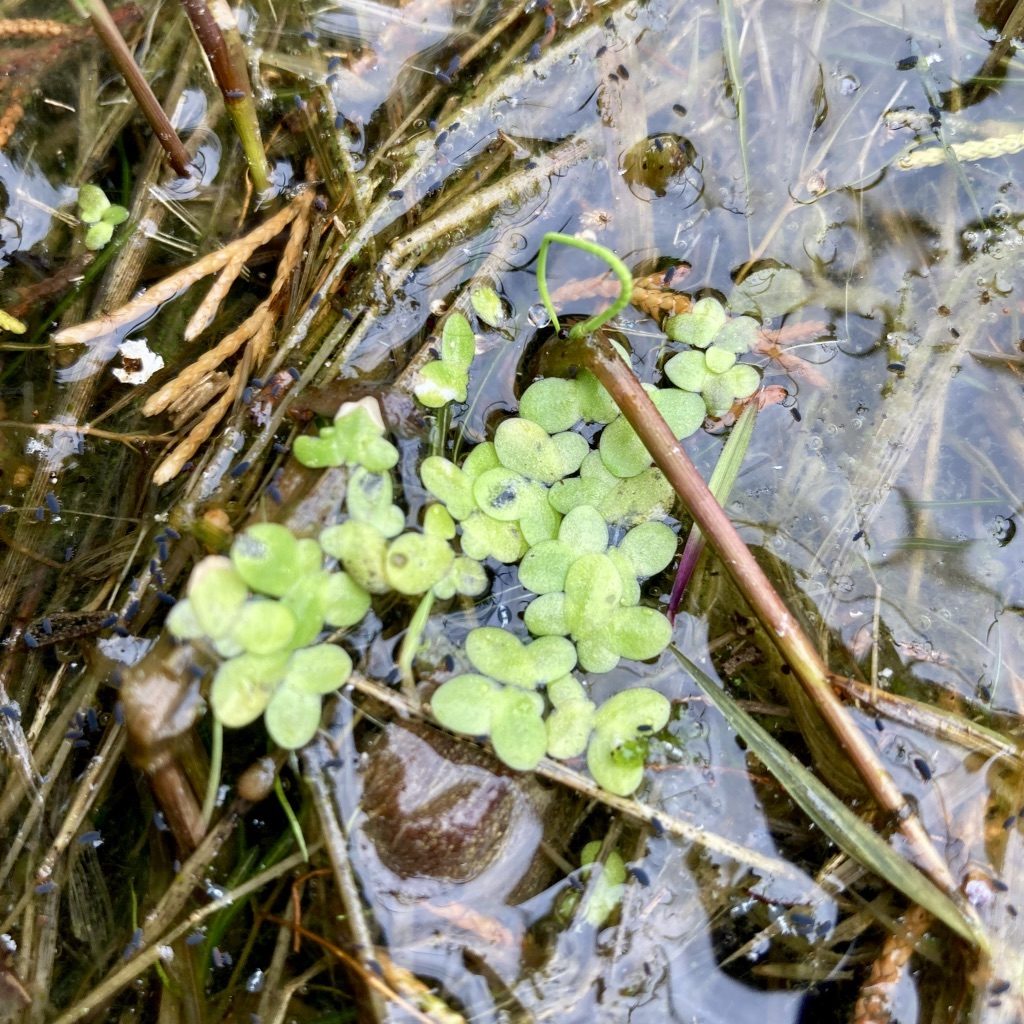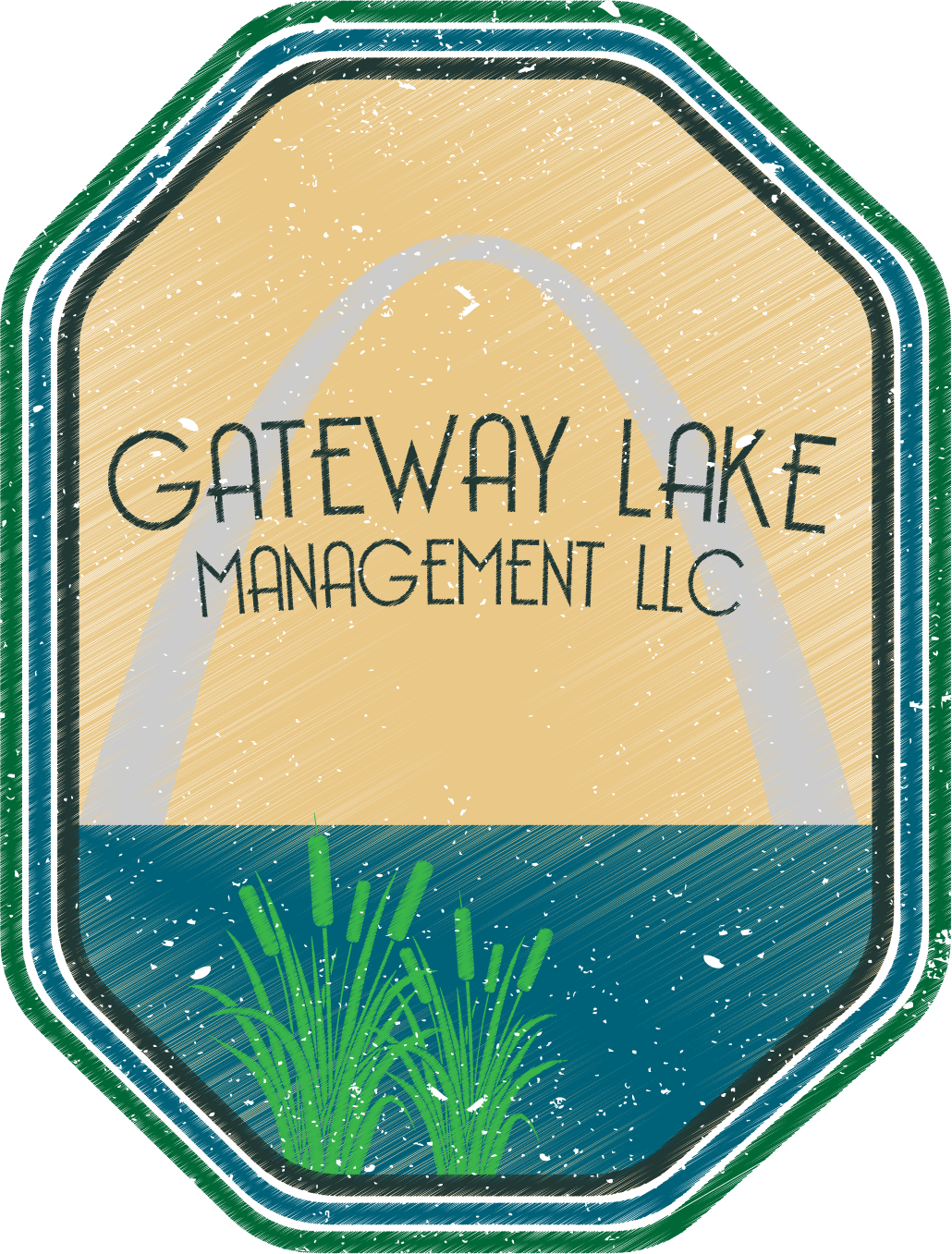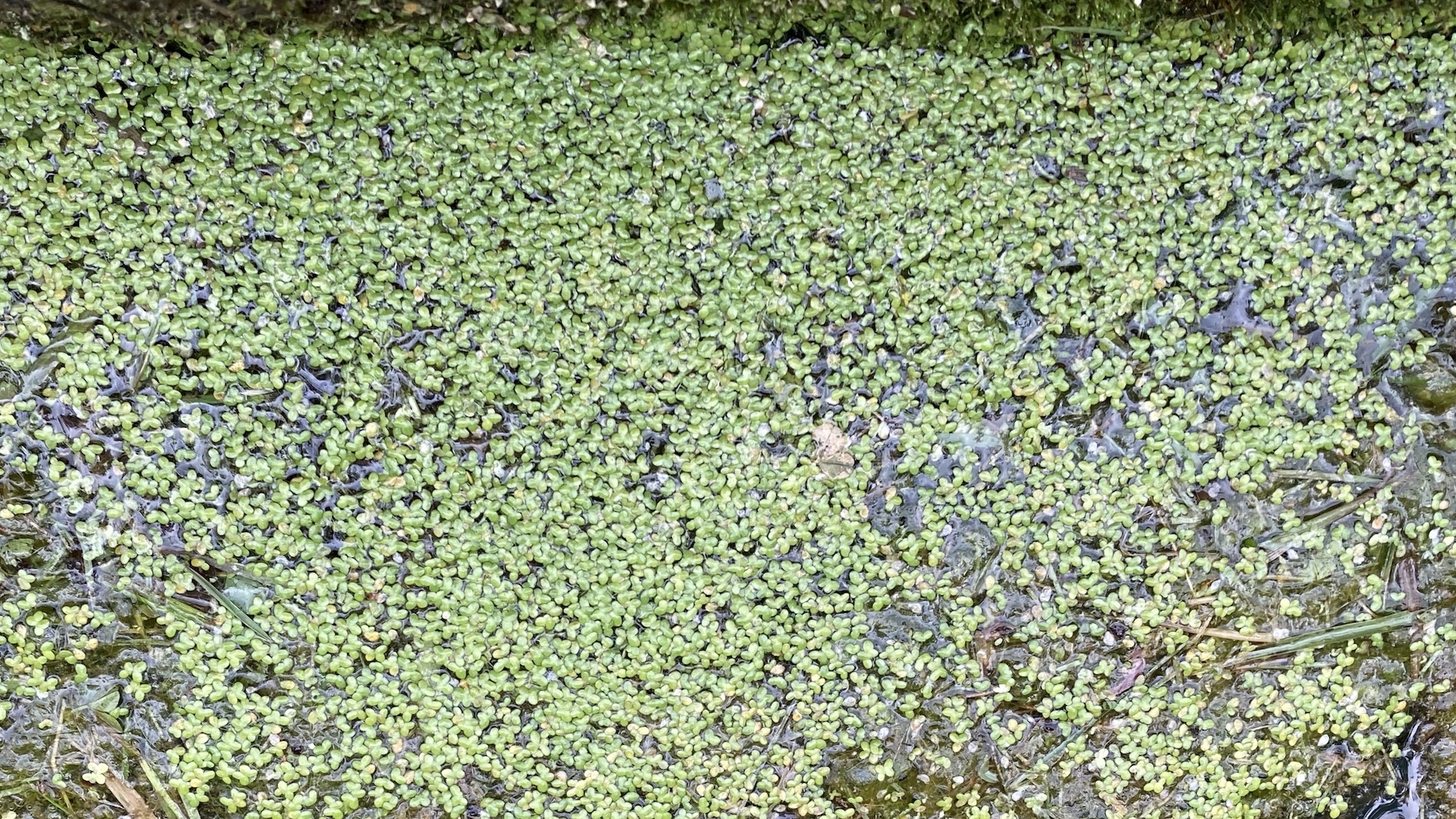Pond Plant Profile: Duckweed
Duckweed is a very common aquatic plant found in almost every state. Lemna minor, aka common duckweed, is a tiny free floating plant that grows 1-3 oval leaves and is about the size of a pencil eraser. The roots dangle below the surface and when enough duckweed builds up it can completely shade out the sun underwater.

Duckweed is a plant that you do not want in your pond or lake. It is an extremely aggressive plant that can reproduce just like any other flowering plant, but it can also reproduce asexually by forming chains of stems from the buds. It can also produce turions which are wintering buds that sink to the bottom and sprout when water temperatures rise in the spring. I’ve received several inquiries this season from individuals who have duckweed in their lakes and ponds, so it’s a common problem in the St. Louis region.
Duckweed vs Watermeal
It is common to have watermeal (wolffia spp) when you have duckweed, but these are two completely different plants. Watermeal looks like tiny grains of sand or green cornmeal – much smaller than duckweed. It’s actually the world’s smallest flowering plant. These plants also have no roots which distinguishes them well from the duckweed species.
Watermeal is harder to eradicate, requiring higher rates of chemical and is more prone to being resistant to chemicals.
How to Get Rid of Duckweed
Being fast growing and prolific means that mechanical removal of such a small plant is usually not feasible. Biological control is also difficult; the plant is highly digestible and contains up to 30% protein, so grass carp and other species do eat them, but not fast enough to control in most cases.
Fluridone is recommended for the best control of duckweed. It will take 30 days of exposure and can cost more than other chemicals, but in many cases can offer multi-year control and at this rate will also control other nuisance species of vegetation. However, lakes and ponds that have a heavy outflow may be subject to a drop in concentration of the chemical, rendering the treatment less effective.
Flumioxazin is also effective and is more cost efficient but comes with the added risk of killing duckweed too fast, causing oxygen-related fish issues, and if your pH is much higher than 8.3, the chemical is very ineffective. Diaquat has been used for years on duckweed but it has a tendency to just burn it back and regrowth is rapid.
If you develop this species in your pond or lake it is best to take care of it before it establishes itself and causes you years of grief and an unsightly body of water. One time treatments may help temporarily but it’s possible it will come back. Ongoing treatment throughout the season could be needed to get duckweed under control.

